on BusinessLoans.com
Best LLC loans in February 2026
Updated December 23, 2025
on partner site
on BusinessLoans.com
on Bankrate
on Bankrate
on BusinessLoans.com
on Bankrate
on Bankrate
on Bankrate
How Bankrate works

How Bankrate works
Compare LLC lenders
Bankrate collects information about the top LLC loans so you can easily compare options at a glance.
Fill out some information
Click "get personalized rates" and fill out some information to help Bankrate match you with lenders.
Get matched for funding
If you qualify, you can choose a loan to apply for and get your LLC funding.
A closer look at Bankrate's top LLC business loans
Best for LLC line of credit: Bluevine
Bluevine is a popular choice for its business line of credit, offering lines up to $250,000 with low starting interest rates of 7.80% simple interest. There are no monthly fees for keeping the line open, and you can get instant withdrawals if you have a Bluevine checking account.
Pros and cons
- Fast funding
- Open to fair-credit borrowers
- Minimal fees
- Unavailable in three states
- Short repayment period of 6 or 12 months
Best lender for newer businesses: Taycor Financial
Taycor Financial is ideal for startups because of it accepts borrowers who have only been in business for three months. Taycor’s equipment financing doesn’t impose any time-in-business requirements, accepting startups that are just getting off the ground. You can get a variety of business loans with this lender from term loans to equipment financing to cash advances.
Pros and cons
- Low credit score requirement
- Fast access to funds
- Variety of loans to choose from
- Limited information on website
- High factor rates for some loan types
- Documentation fee may apply
Best for building business credit: iBusiness Funding
If you want low-interest term loans or SBA loans, iBusiness Funding’s interest rates start at just 7.49%, which puts this fintech on par with bank lenders. And you won’t have to worry about prepayment penalties, so feel free to pay off your loan early and save on interest.
Pros and cons
- Low starting rates
- Repayment terms up to 7 years
- No prepayment penalties
- High origination fee
- Required credit score of 660
- Tough for newer businesses to qualify
Best for personalized funding: SmallBusinessLoans.com
SmallBusinessLoans.com matches your business with the right lenders and loans with just one application. Its prequalification allows you to see what loans you qualify for without a hard check on your credit.
Pros and cons
- Low minimum annual revenue requirement
- Variety of lending partners
- Personalized funding options
- Must fill out an application to know what you qualify for
- May not be eligible for every product
- Limited information online
Best for equipment loans: Triton Capital
Triton Capital equipment loans help businesses just starting out because it doesn't have a minimum time in business requirement. It also offers flexibility with payments, allowing you to pay seasonally, monthly, quarterly or semi-annually. You choose the payment plan that best suits your business.
Pros and cons
- Fast access to funds
- Low starting rates
- Offers Lowest Payment Guarantee
- High maximum rates
- High annual revenue requirement
- Potentially high fees
Best lender for startups: OnDeck
OnDeck specializes in short-term business loans and lines of credit up to $250,000 with terms up to 24 months. Funding is available within the same day for term loans and instantly for lines of credit once the line is open.
Pros and cons
- Same-day funding
- Reports to credit bureaus
- Early repayment incentives
- High interest rates
- Not available in all states
- Short repayment periods
Best for term loans: SMB Compass
SMB Compass provides an array of nine business loans for you to choose from, unique considering most online lenders only offer one or two types of loans. Its term loans offer funding up to $5 million with low starting interest rates at 6.99%.
Pros and cons
- Offers nine types of loans
- Low starting rates
- High borrowing limits
- Closing fee of 1% to 3%
- Uses factor rates for some loans
- Some loan types take weeks to fund
Best for LLC bank loans: Bank of America
If you’re looking for a bank lender with in-person support, Bank of America has locations in every state. It provides a variety of business loans to choose from, including lines of credit and secured and unsecured term loans.
Pros and cons
- Free business credit score
- No collateral needed
- Low interest rates
- Requires good credit
- Slow application process
- Limited access to online application
Best for SBA loans: Live Oak Bank
Live Oak Bank is a top originator in SBA loans, offering a streamlined process to get approved for these loans. It provides SBA 7(a) loans starting at $150,000 to $5 million, so it’s ideal for businesses needing to make large purchases.
Pros and cons
- Offers SBA 7(a) and SBA 504 loans
- SBA Preferred Lender
- No prepayment penalties on select loan products
- Extensive application process
- Limited information on website
- No online access to loans
Best for early payoff: National Funding
National Funding has funding specialists who walk you through every part of the business funding process. You can get funding as quickly as 24 hours, and National Funding offers early payoff discounts, helping you pay off your loans early without penalty.
Pros and cons
- Possible prepayment discount
- No collateral on leases
- Lowest guaranteed payment on leases
- Maximum interest rate not disclosed
- No online prequalification tool
- Only offers equipment financing up to $150,000
How Bankrate chooses our best LLC loan lenders
Bankrate's trusted small business loan industry expertise
57
years in business
30
lenders reviewed
22
loan features weighed
770
data points collected
What is an LLC Loan?
An LLC loan is a business loan that can be issued to companies structured as limited liability companies (LLCs). The loan itself doesn't differ from other types of small-business loans, as lenders typically don't have requirements about the type of business structure you choose.
An LLC business structure offers certain protections that allow the business owner to keep their personal assets if the business undergoes bankruptcy, which means only business assets can be liquidated or seized upon default.
Though an LLC's business structure protects you from personal liabilities, many lenders may require you to sign a personal guarantee when applying for an LLC or business loan, which means you are personally responsible for covering the loan in the event of a default.
How to get an LLC loan through Bankrate
Getting an LLC loan involves a few key steps, from determining the right product and lender, to calculating how much you can borrow to submitting your documentation for approval. Bankrate can help you find what you need to know.
1. Determine if an LLC loan is right for your business
An LLC business loan works much like any personal or business loan. You can use LLC loans to cover business-related expenses, including:
- Inventory purchases
- Equipment purchases
- Real estate
- Marketing
- Startup costs
- Working capital expenses
What differentiates LLC loans from other types of business loans is personal liability. An LLC business structure offers certain protections that allow the business owner to keep their personal assets if the business undergoes bankruptcy, which means only business assets can be liquidated or seized upon default.
In general, an LLC loan can be a good option for your business if you:
- Have a good credit history
- Have a solid revenue stream
- Have been in business longer than six months to a year
- Want to limit your personal liability when borrowing

What makes an LLC loan different from a regular small business loan?
While there is overlap between regular business loans and LLC loans, personal liability is what makes LLC loans unique.
Learn moreAn LLC loan is a business loan specifically structured for a limited liability company. The debt obligation is the responsibility of the legal entity, not its individual members. This arrangement helps protect the personal assets of the LLC’s members. However, most LLC loans have strict documentation and underwriting requirements, and many LLC lenders require personal guarantees from the entity’s members.Thomas Brock: CFA, CPA
2. Calculate how much debt your business can handle
Before you apply for any loans, you’ll want to make sure you can handle the weekly or monthly payment. It can be a good idea to calculate a payment range that you’re comfortable with, as some loans come with a variable interest or factor rate.
In general, your business debt shouldn’t exceed 36 percent of your annual revenue. For example, if your business makes $150,000 annually, you should aim for no more than a $54,000 loan and interest balance for the year.
On a monthly basis, this means your monthly payment should be no more than $4,500 with interest and fees. If you take out a 5-year loan with a 7.5 percent fixed interest rate and 60 monthly payments and want to keep to a $4,500 monthly payment, then your maximum loan amount would be $224,574.

How much will an LLC loan cost?
Interest, fees and underwriting costs can quickly add up. Here’s what you’ll need to pay when you borrow.
Learn more3. Find the right lender
Choosing a lender that works best for your business’ needs can make a world of difference in cost, service and payment terms. Which lender you choose for your LLC loan will depend on your business needs and what they have to offer.
When considering a lender, you’ll want to think about the following factors:
- Loan rates and fees. Some lenders will offer lower interest rates or limited fees.
- Product offerings. Lenders can have a wide variety of loan products, such as lines of credit, equipment loans or business credit cards.
- Requirements. Different lenders can have stricter or more relaxed borrowing requirements.
- Speed of approval. Some lenders will offer approval in less than 24 hours.
- Customer service. Some lenders can offer features such as personalized loan matching, 24/7 customer service or a mobile app.
While lenders will differ in their offerings and approaches, different types of lenders can offer different pros and cons.
| Lender type | Pros | Cons |
|---|---|---|
| Banks |
|
|
| Credit unions |
|
|
| Online lenders |
|
|
| Small Business Administration (SBA) approved lenders |
|
|
| Community lenders |
|
|
4. Make sure you meet requirements
Every lender will set its own requirements for an LLC loan. In general, lenders mostly care about whether you’ll pay the money back and use their requirements to reduce the odds of lending to someone who defaults on the loan.
Some common criteria lenders use include:
- Time in business. The newer your LLC, the riskier it looks as a borrower. Some lenders will want your LLC to be anywhere from six to 24 months old before applying for a loan.
- Revenue. Your LLC must have sufficient income to cover the monthly cost of the loan. The more money your company brings in each month, the easier it will be to qualify for a loan and the more you’ll be able to borrow.
- Expenses. Along with revenue, the lender will look at your company’s current debts and expenses. The less your LLC spends in comparison to its revenue, the better your chances.
- Credit history. Your LLC has its own credit score, and your lender will want to examine your company’s credit to make sure it isn’t a risky borrower. Some lenders may also ask for a personal guarantee if your LLC has limited credit or is too new.
Documents needed for an LLC loan
Lenders will require you to submit documents pertaining to your finances, personal and business information and LLC status when you apply for a loan. While different lenders will have different requirements, these documents will typically include:
- Personal information and bank statements
- Personal tax returns
- LLC tax returns, possibly for the last three years
- Quarterly tax receipts
- Recent LLC bank and financial statements
- Business tax ID or Employer Identification Number
- Licenses or permits
- Business formation documents
- Unpaid invoices
- Business plan or funding request
- Commercial lease
- SBA forms
- Collateral appraisals and proof of ownership
- A cash flow statement

What documents are required to apply for an LLC loan?
Knowing what to prepare beforehand can help your LLC application process go faster.
Learn more5. Prequalify through Bankrate
When shopping for loans, consider prequalifying with us. Bankrate offers multiple benefits if you decide to prequalify on our site, including:
- Instant prequalification based on your credit profile
- Compare multiple lenders at once instead of one lender at a time
- No hard checks
- Get expert insights based on unbiased reviews and analyses
- Access loan information and applications in one place
- Build a profile you can access later in the process

Types of LLC Loans
From bank loans to SBA loans to lines of credit, here are your options for LLC lending.
Learn moreHow to compare LLC loans
No two LLC loans are the same, and the right loan for your business will depend on your revenue, needs and priorities.
| If your most important deciding factor is… | …then you should consider |
|---|---|
| Interest rate |
|
| Funding flexibility |
|
| High amounts |
|
| Low amounts |
|
| Ease of approval |
|
| Speed of approval |
|
Frequently asked questions about LLC business loans
- Small-business
- Small-business loans




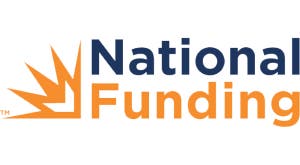
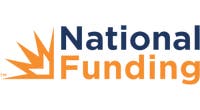
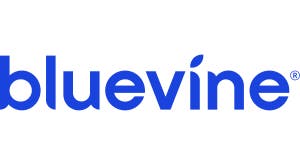
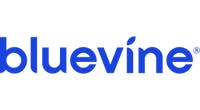
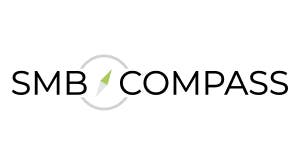
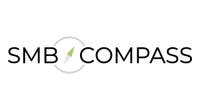
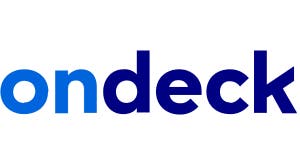
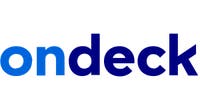
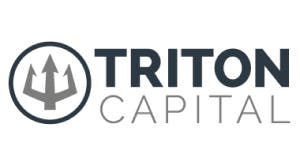
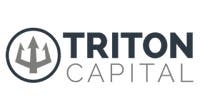
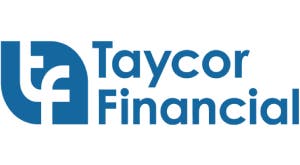
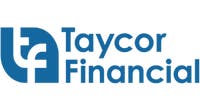
.png?optimize=medium&format=pjpg&auto=webp)
.png?optimize=medium&width=200&format=pjpg&auto=webp)
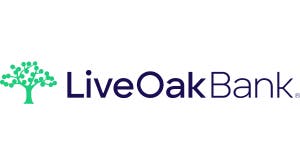
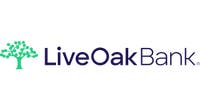









.png?auto=webp&fit=&width=200&format=pjpg)


